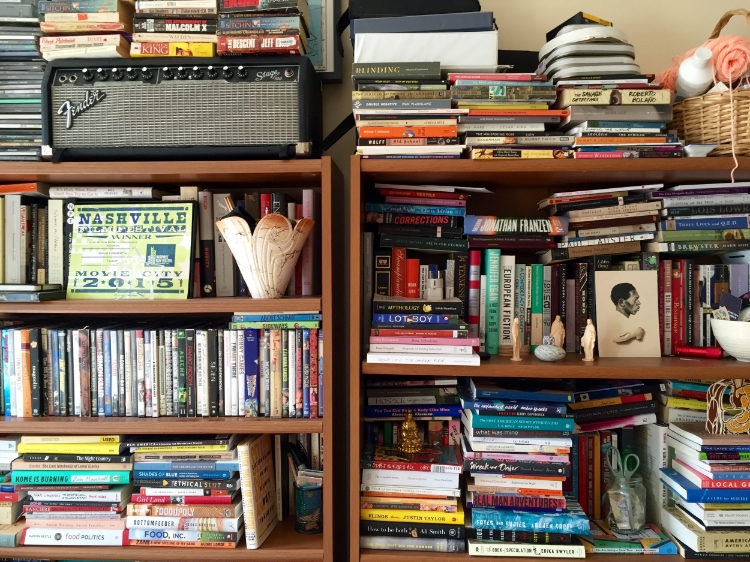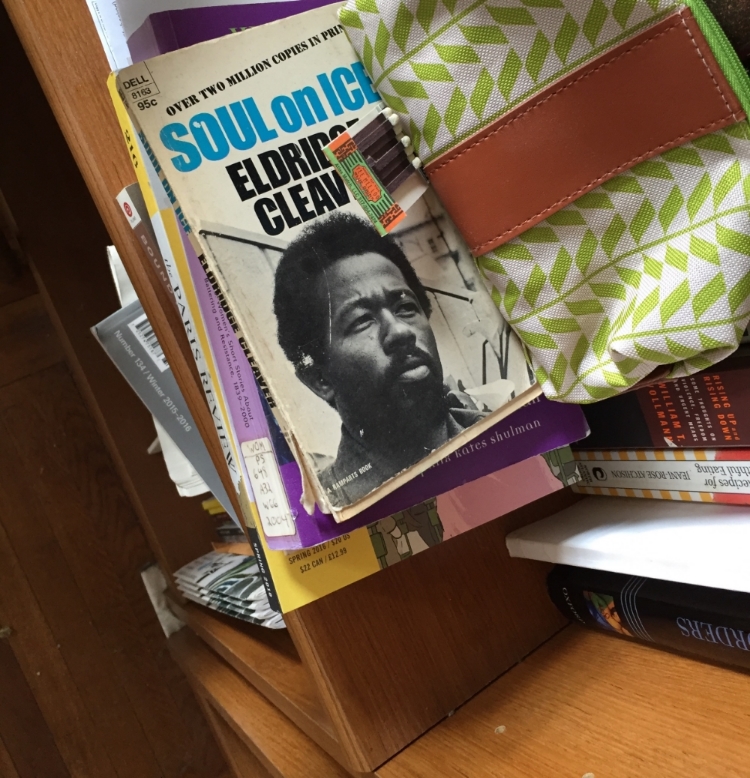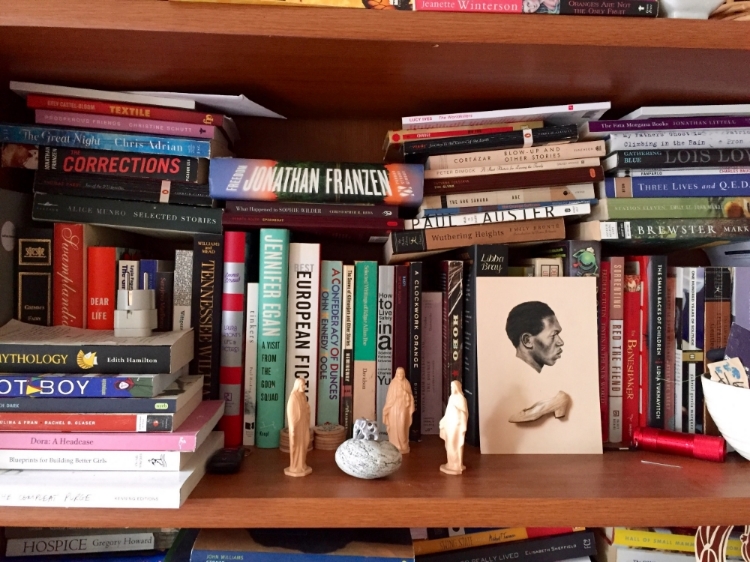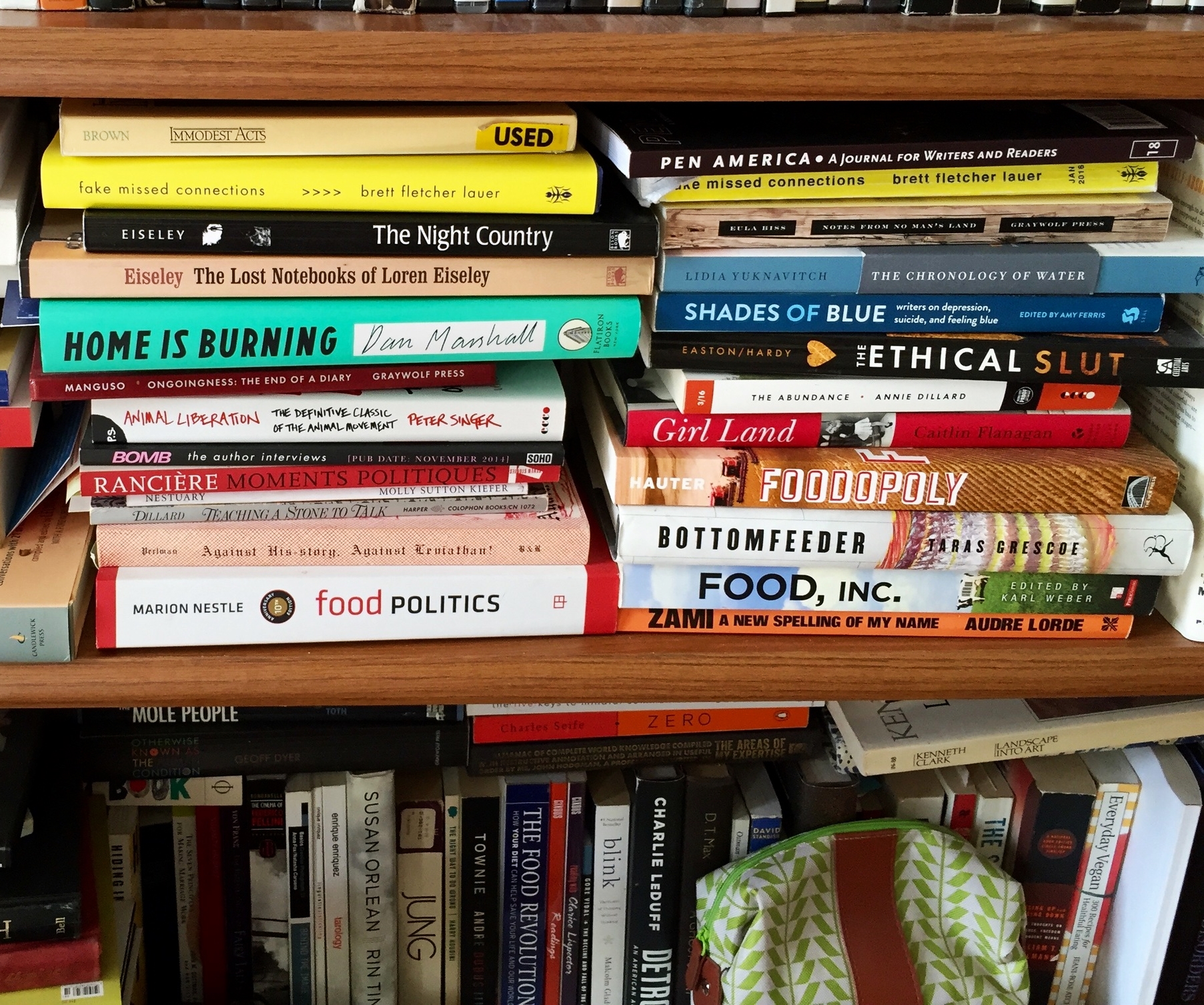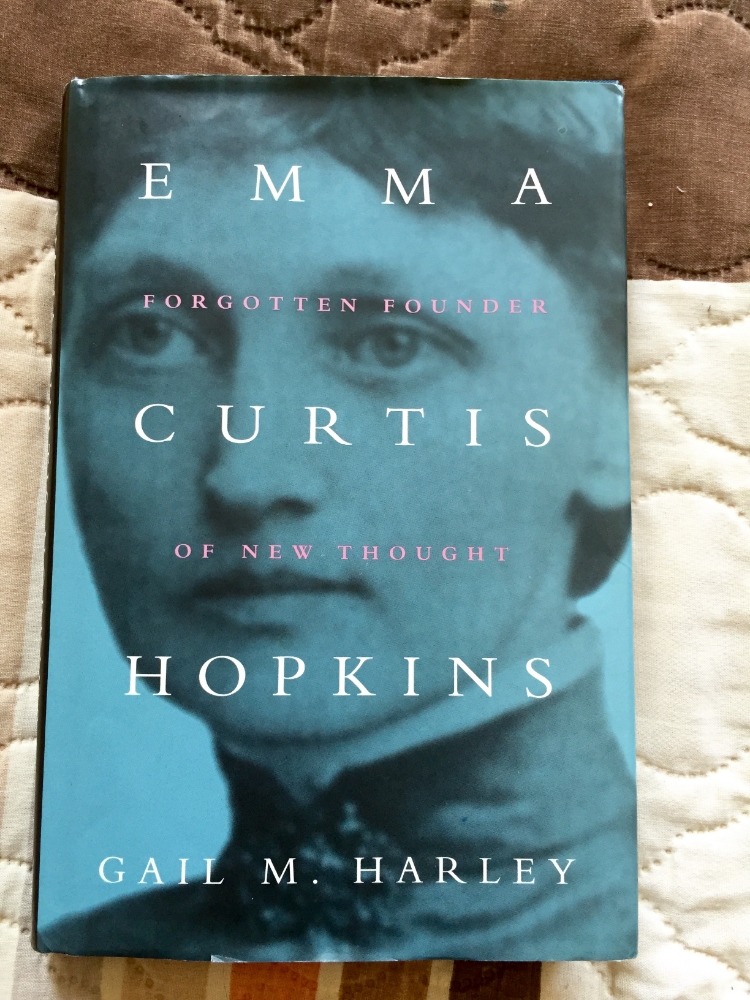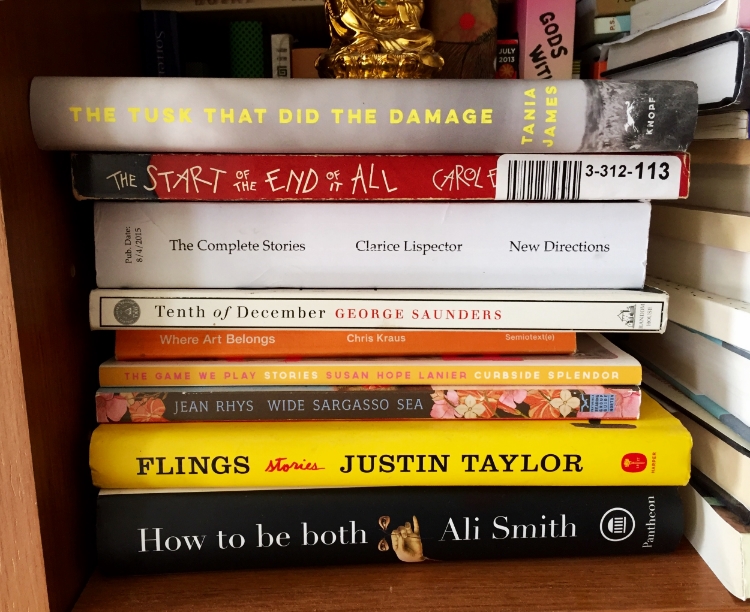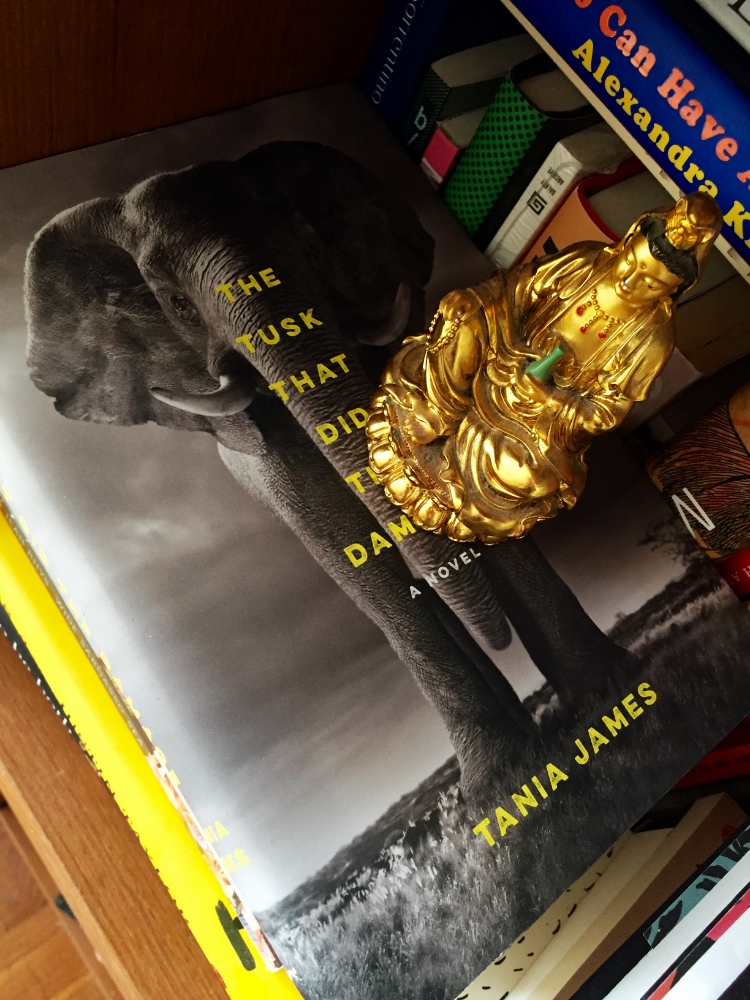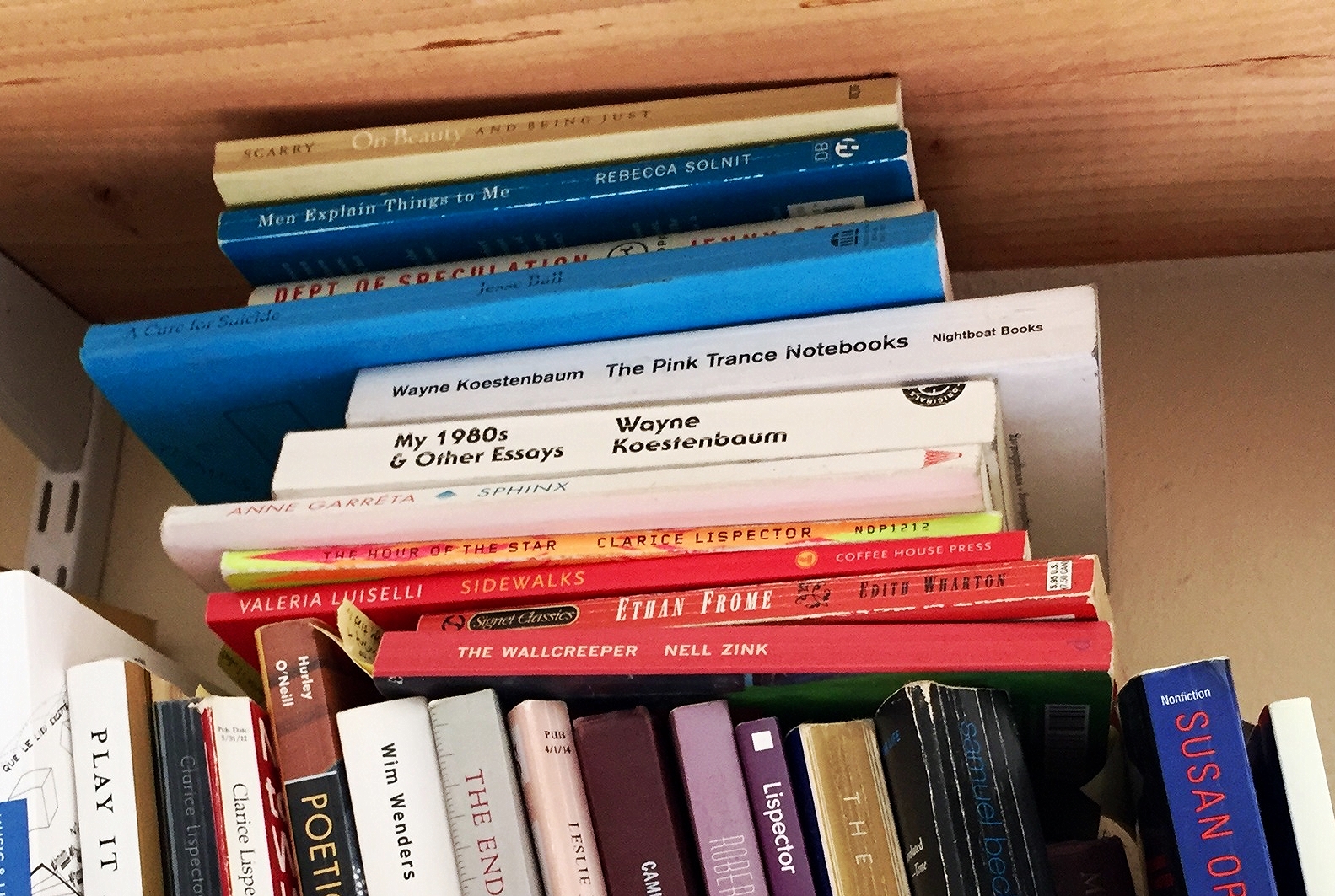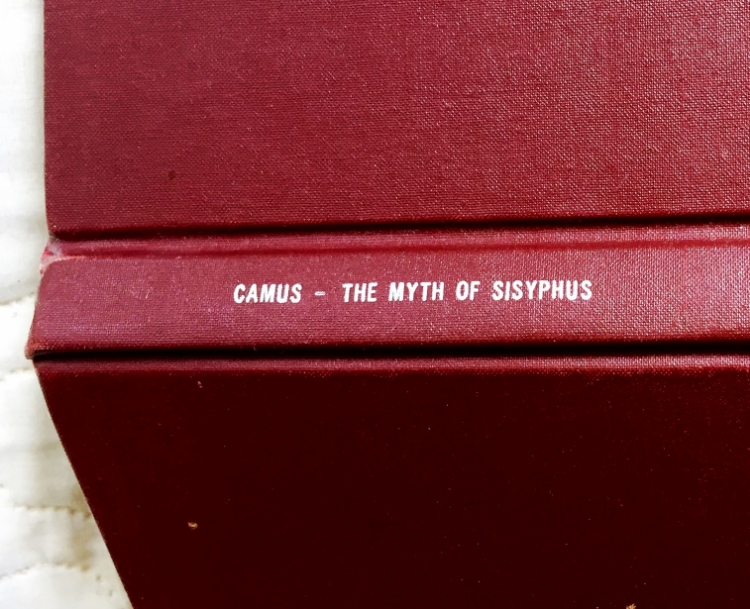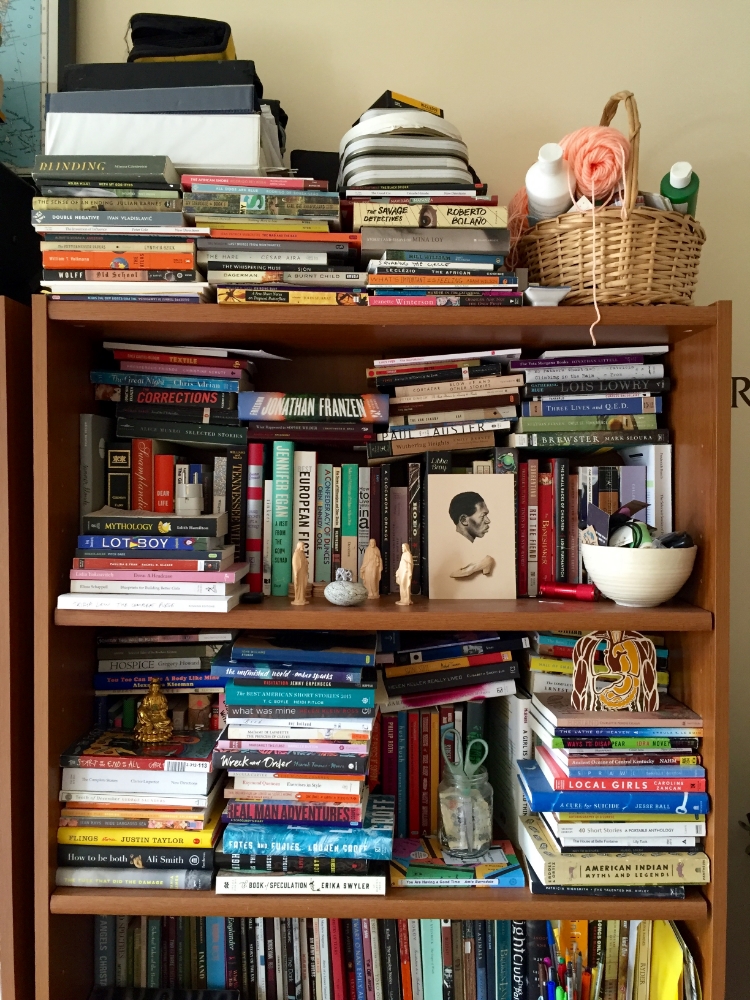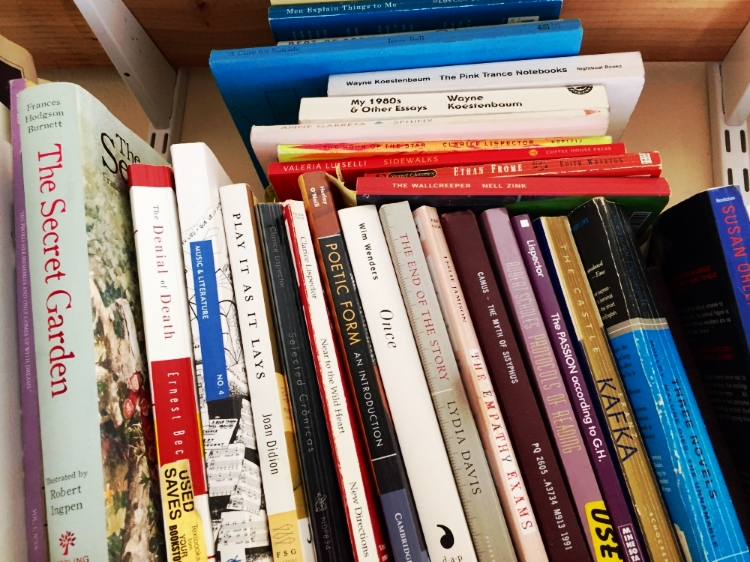A BOOKSHELF ODYSSEY: SARAH GERARD'S
/By Katya Wachtel
"A personality is stamped on a library just as a shoe is shaped by the foot," wrote English playwright Alan Bennett. That's why the first thing we do after entering a house into which we've never stepped foot is a stealthy but comprehensive scan of the tenant's book collection. You can tell a lot about a person by the books on their shelves. This then is the inspiration for our new series, A Bookshelf Odyssey, in which we chat with writers and thinkers about the volumes that make up their personal library. Writer Sarah Gerard, who will appear in one of The Literary Show Project's first episodes, welcomed us into her home in March for the first instalment in the series.
Gerard is a young American author to whom you should pay attention. In February her hypnotic debut novel, Binary Star (Two Dollar Radio), was named a finalist in the LA Times Book Awards First Fiction category, after high praise from the likes of the New York Times ("the particular genius of 'Binary Star' is that out of such grim material it constructs beauty. It’s like a novel-shaped poem"), NPR ("Rhythmic, hallucinatory, yet vivid as crystal. Gerard has channelled her trials and tribulations into a work of heightened reality, one that sings to the lonely gravity of the human body") and others.
Binary Star is a semi-autobiographical novel that traces the dysfunctional, co-dependent relationship of an anorexic woman and her alcoholic boyfriend, filtered through an inner monologue with a galactic translation (by the end of her treatise, you will know the mechanisms of a white dwarf star; a black hole.)
Gerard lives in a light-filled studio apartment in Ditmas Park, Brooklyn, with her husband, filmmaker David Formentin. She has been a New Yorker for years but grew up in Florida, which is the subject of her current project -- a collection of essays titled Sunshine State (Harper Perrenial). A map of Clearwater Beach -- a white-sand, coastal haven in the Tampa Bay area -- is tacked to the wall above her desk. Gerard's workspace is nestled in a corridor between the bathroom and kitchen area, in a tiny alcove that was intended for a cupboard. The small table is stacked with books and papers; below it sits a large plastic box filled with magazines for the collages Gerard sometimes assembles in her downtime.
Gerard has several bookshelves; two tall cases that stand cheek by jowl against the apartment's Western-most wall, plus some floating shelves above her bed for more “special” literary acquisitions. We begin our chat beneath this set of shelves.
*****
Sarah Gerard: So up here are a lot of the books that I've written about, and others that are special to me for different reasons.
Literary Show Project: Like?
SG: Like, Men Explain Things to Me. Rebecca Solnit is really smart and has a very -- how do I say this -- a real command of her thinking and language. She's very politically astute and always caught up in forward thinking and current events. And then above that is Elaine Scarry's book, On Beauty and Being Just. So I keep this as a special section. The Secret Garden is a book I read a lot when I was a child. I really enjoyed dipping into that world.
LSP: Is that your copy from when you were a child or a new one?
SG: No. This is one that I bought when I was working at McNally Jackson, because I got a staff discount and this beautiful edition came in and I didn't currently own a copy. And then here -- I read this book, Robert Scholes's Protocols of Reading in college actually. This is the first time -- in this class, as an undergrad --- when I really began to enjoy literary criticism. Or first got really excited about reading and the magic of writing. That was in this class. It's silly that I still have that book. Or maybe it’s not.
LSP: No it isn't. Was it a book that was assigned or something you came across yourself?
SG: It was a book that was assigned to me in an intro to literature class. I think the class was called something equally as vague as Protocols of Reading. It was the class where I learned that there were different schools of critique, and different ways of reading too: a feminist reading or an historical reading. I read a lot of basic works from the canon in that class, like Sonny's Blues by James Baldwin. It really opened my mind in a literary way. I also keep Susan Orlean's The Orchard Thief on this shelf, because it's some of the most beautiful writing about Florida ever done.
LSP: Is that the one that was the basis for--
SG: Adaptation.
LSP: I loved that movie. I should probably read the book.
SG: It's an excellent book. The story -- there's not really much of a story --- the story is kind of meandering but you love being in that world so much and she really captures the exoticism and the strangeness of Florida and its constant change.
LSP: Is there a book here that's the oldest one you own? Have you brought any from Florida?
SG: Yeah. I don't know which ones, but I'm sure there are books here I had when I was in Florida. I think... No, I was in grad school when I stole (Camus's) The Myth of Sisyphus.
"Elephants are my favorite animal… I have a tattoo of one also... They could be so dangerous; they could do so much damage, but they’re so peaceful.”
LSP: Clarice Lispector -- you mentioned she's someone that's important to you. How did you discover her?
SG: She was introduced to me in grad school. I took two literary seminars with Shelley Jackson because I loved her taste so much and she assigned this translation of The Passion According to G.H. and I fell in love with that, but then another translation came out as part of this quartet published by New Directions in 2012.
So I have both of those translations up here because they are really different. I became really interested in translation for a while after having this experience with her and started to read a lot of books in translation. And now it's less of a focus of mine but I'm glad I'm able to recognize how important it is, and how interesting too.
LSP: Well I just noticed you have Valeria Luiselli's Sidewalks up there. She talks about the importance of translation and how different a book can be in translation, which I think is amazing and enchanting and also worrying, if it's not translated well -- the break that can occur in what was intended... I see you've got the Secret History up there too.
SG: I haven't read that yet. I don’t know why it's up there -- I think only because its cover is also black and white and it's next to White Girls.
LSP: You have to read The Secret History.
SG: I will. I want to read so many things. Once I finish writing this book...
LSP: There's too much to read. Don't you just feel overwhelmed sometimes because there's not enough time to read everything you want to read?
SG: And when you're a writer and you work in the literary world books just appear in your life, all the time. (Gerard turns and walks over to the large bookcases.) A lot of these books are ones that I haven't had a chance to read yet.
LSP: What on this shelf have you read recently that you liked or loved?
SG: I read the Lathe of Heaven by Ursula Le Guin recently and really loved her. For this essay that I'm writing now, for Sunshine State, it's about this marginal religious movement that emerged around the turn of the century and its connection to the women's movement. So I started to read feminist utopians like Charlotte Perkins Gilman, and then I started thinking about women and science fiction and women in religion in this very science-minded religious movement that I'm reading about, and how I could maybe connect those two ideas. I've always wanted to read the Lathe of Heaven and it happened to appear on one of those "10 Slim Novels To Read in the Bathtub" lists and so, it was suggested to me at the perfect time, and a really quick read and so beautiful.
LSP: Are there any books here you bought just because you loved the cover?
SG: Like an impulse purchase? I bought this Grimm's Fairytales because I didn't have a copy of it and I liked that it looked so grand. I'm sure I bought one just because I liked the look of it. I make a lot of impulse purchases. Here's one I bought that I really didn't need to buy - The Tusk That Did The Damage. I think I bought this because I was thinking a lot about animals at the time -- animals are another theme that runs through Sunshine State. And this had just come out and it just so happens that elephants are my favorite animal.
LSP: Oh really?
SG: See there's another one here on the shelf. And I have a tattoo of one also. I really connect with their spirit. They could be so dangerous; they could do so much damage but they’re so peaceful. I guess I could admit I like them because they're so human-like, they're like humans that I want in my life! But see, this elephant was looking me right in the eye.
LSP: Is it a good book?
SG: I haven't read it yet. This is the thing -- this is what I mean, there's just too much to read.
LSP: And what are you reading at the moment?
SG: I’m reading this biography of one of that religious movement's founding members – Emma Curtis Hopkins. The book has been very interesting. It contains a lot of useful information about her later life, after she left Chicago and became something of a mystic and a recluse.
***
The postscript to this conversation? We bought the The Orchard Thief immediately; Gerard, meanwhile, did some culling: "I significantly thinned out the bookshelves after you left."
